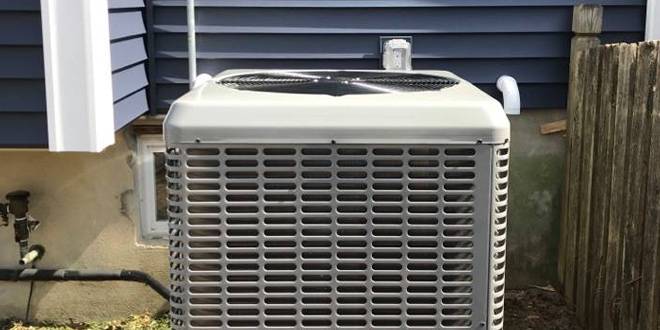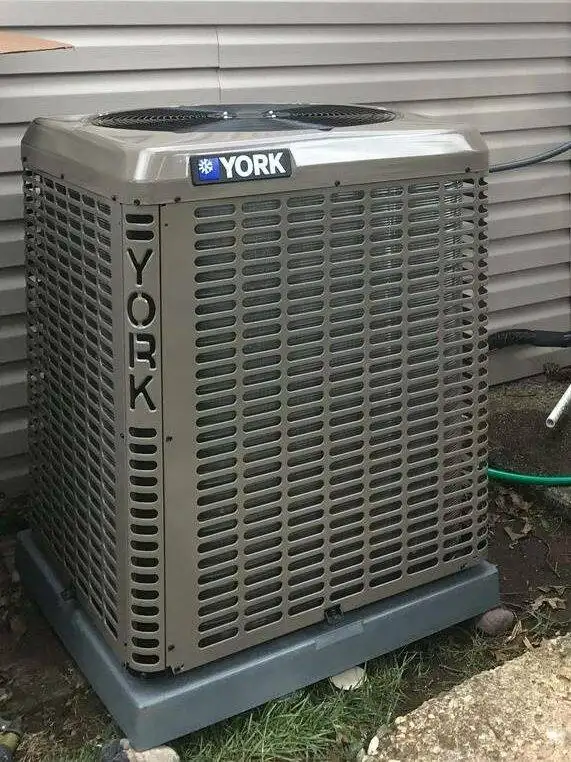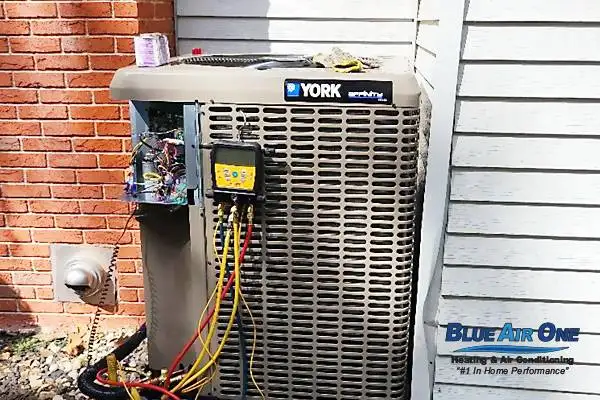
In Linden, NJ, where the climate demands efficient heating and cooling solutions, heat pumps in 2024 offer a sustainable and cost-effective alternative. This expert guide will help you navigate through the latest in heat pump technology, ensuring your home or business stays comfortable year-round.
Understanding Heat Pumps
Heat pumps are versatile systems designed for both heating and cooling your space. Unlike traditional HVAC systems, they transfer heat rather than generate it, making them an energy-efficient choice for your home or business.
Types of Heat Pumps: A Closer Look

Let’s delve deeper into the three main types of heat pumps available on the market.
Air-source Heat Pumps
Air-source heat pumps are the most widely used type of heat pump. They are particularly suited for moderate climates and work by transferring heat between the air inside your home and the air outside. During the winter, they extract heat from the outdoor air and transfer it indoors to warm your home. Conversely, in the summer, they remove heat from your home and release it outside to cool your interior. The modern air-source heat pump is designed to be highly efficient compared to gas furnaces, even in colder temperatures, thanks to advances in technology that allow them to extract heat from the air even when it feels cold outside.
Key Features:
- Suitable for a wide range of climates, particularly effective in moderate ones.
- Heat pump space heating can reduce electricity use for heating by about 50% compared to traditional electric heating systems.
- Often easier and less expensive to install than ground-source heat pumps.
Ground-source (Geothermal) Heat Pumps
Ground-source, or geothermal, heat pumps take advantage of the earth’s relatively constant temperature below the surface to heat and cool your home. In the winter, they circulate a water-based solution through a loop of pipes buried underground, absorbing heat from the ground and transferring it indoors. During the summer, the process is reversed, with the system extracting heat from your home and dissipating it into the ground. This type of heat pump is incredibly efficient and can significantly reduce your energy bills, due to it’s use of renewable energy.
Key Features:
- Offers the highest efficiency of all heat pump types due to the stable ground temperature.
- Can provide heating, cooling, and hot water, making it a versatile solution.
- Has a higher initial installation cost but offers lower operating costs and longer lifespans, often 25 years for the indoor components and 50+ years for the ground loop.
Ductless Mini-Split Heat Pumps
Ductless mini-split heat pumps are an excellent heating system solution for homes without ductwork, additions, or rooms that are difficult to heat and cool. They consist of an outdoor unit connected to one or more indoor units via small refrigerant lines. Each indoor unit can be controlled independently, allowing for zoned temperature control throughout your home. This means you can heat or cool only the spaces you’re using, which can lead to significant energy savings.
Key Features:
- Provides targeted heating and cooling, improving comfort and efficiency.
- Eliminates the energy losses associated with ductwork, which can account for more than 30% of energy consumption for space conditioning.
- Flexible installation options and minimal visual impact, with indoor units that can be mounted on walls, ceilings, or even as floor-standing units.
Advancements in Heat Pump Technology
Variable Speed Compressors:
These allow heat pumps to adjust cooling and heating output more precisely, enhancing comfort and efficiency.
Smart Controls:
Modern heat pumps come equipped with Wi-Fi and smart thermostats for better control and energy savings.
Improved Refrigerants:
Newer models use eco-friendly refrigerants that have a lower impact on the environment and increase system efficiency.
Benefits of Installing a Heat Pump in 2024
Energy Efficiency:
Heat pumps can reduce electricity use for heating by approximately 50% compared to electric resistance heating.
Cost Savings:
Lower operating costs than traditional heating and cooling systems can lead to significant savings on utility bills.
Environmental Impact:
With lower greenhouse gas, fossil fuels, and carbon emissions, heat pumps are a more sustainable choice for heating and cooling.
Versatility:
One system for both heating and cooling simplifies home comfort.
Choosing the Right Heat Pump: Detailed Considerations
Selecting the ideal heat pump for your home or business involves a careful evaluation of your specific needs, the efficiency of the system, and ensuring professional installation. Here’s a deeper dive into these critical factors to help you make an informed decision.
Assess Your Needs
Climate: The effectiveness of a heat pump can vary significantly based on your local climate. Air-source heat pumps are generally more suited to moderate climates but can struggle in extreme cold unless they are specifically designed for low-temperature operation. Ground-source (geothermal) heat pumps are less affected by outside temperature changes, making them a viable option for nearly any climate due to the earth’s constant underground temperature.
Home Size and Layout: The size and design of your home will influence the type and size of the heat pump you need. Larger homes may require more powerful systems or multiple units to effectively heat and cool the entire space. The layout, including ceiling heights, open spaces, and insulation quality, also affects your heating and cooling needs.
Heating and Cooling Needs: Evaluate your heating and cooling requirements, including any specific needs such as humidity control, air filtration, or zoned temperature control. Ductless mini-split systems offer an excellent solution for creating zones or supplementing areas that traditional systems can’t effectively reach.
Energy Efficiency Ratings
SEER (Seasonal Energy Efficiency Ratio): This rating measures the cooling efficiency of air conditioners and heat pumps. A higher SEER rating indicates greater efficiency and lower operational costs during the cooling season. Look for units with a SEER rating of at least 15 for good energy efficiency.
HSPF (Heating Seasonal Performance Factor): This rating applies to the heating efficiency of heat pumps. Like SEER, a higher HSPF rating means higher efficiency and energy savings during the heating season. An HSPF rating of 8 or above is considered efficient.
Investing in a heat pump with high SEER and HSPF ratings can lead to significant energy savings over the lifespan of the unit. While these units may have a higher initial cost, the reduced monthly utility bills often offset this over time.
Professional Installation
Correct Sizing: One of the most critical aspects of heat pump installation is ensuring the unit is correctly sized for your space. A system that’s too large will cycle on and off too frequently, reducing efficiency and lifespan. Conversely, a system that’s too small won’t adequately heat or cool your home, leading to discomfort and increased energy use.
Certified Professional: Always choose a certified HVAC professional for the installation of your heat pump. Proper installation is crucial for the system to operate efficiently. An experienced technician will consider all factors, including ductwork, insulation, and home layout, to ensure your heat pump is installed correctly.
Warranty and Service: A professional installer can also provide you with valuable information about the warranty and offer maintenance services to keep your heat pump running efficiently for years to come.
Choosing the right heat pump involves a comprehensive evaluation of your specific needs, prioritizing energy efficiency, and ensuring professional installation. By taking these steps, you can enjoy comfortable temperatures in your home or business while minimizing your environmental impact and saving on energy costs.
Maintenance Tips
Regular Check-ups: Schedule annual maintenance with a professional to keep your system running efficiently.
Clean Filters: Regularly clean or replace air filters to maintain air flow and system efficiency.
Inspect Outdoor Units: Keep the area around your outdoor unit clear of debris to prevent airflow blockages.

🌱 Elevate your comfort with Blue Air One Heating & Air Conditioning! 🏡
Embrace the future with the latest heat pump technology in 2024. Our team is ready to guide you through selecting, installing, and maintaining the perfect heat pump solution for your Linden, NJ home or business. Schedule your consultation today and experience unparalleled comfort and efficiency all year round!



